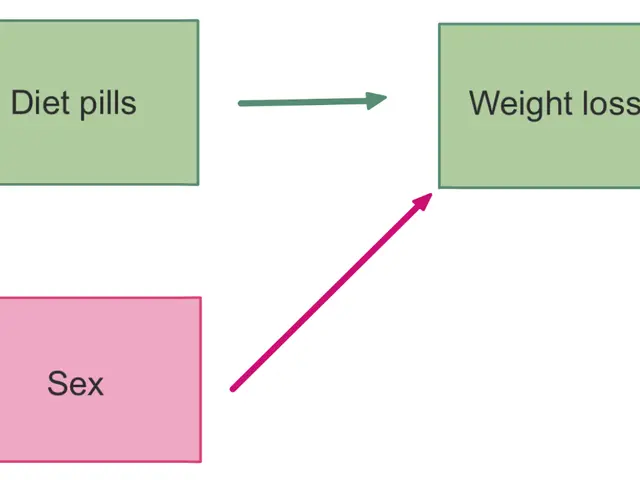Artificial Intelligence Poses a Fresh Challenge for Healthcare Institutions: AI Agents Loom Large
In the rapidly evolving world of healthcare, Artificial Intelligence (AI) agents are increasingly being adopted to automate tasks, maximize patient time, and unlock new efficiencies. However, the introduction of AI agents brings increased security risks due to their ability to autonomously access internal systems, software tools, and datasets.
To mitigate these risks and ensure patient data privacy, a comprehensive, multilayered approach is required. This approach focuses on both technology and organizational practices.
**Data Encryption**
Encrypt patient data both at rest and in transit using robust standards such as AES-256 for storage and TLS for data transmission. This ensures data remains unreadable if intercepted or accessed by unauthorized parties.
**Access Controls and Authentication**
Implement stringent access controls through Role-Based Access Control (RBAC) limiting data access only to authorized personnel based on their roles. Use Multi-Factor Authentication (MFA) to strengthen identity verification, reducing the risk of unauthorized access to AI systems.
**Regular Security Audits and Vulnerability Assessments**
Continuously scan AI systems and connected infrastructure with vulnerability scanning tools and perform ongoing security audits. Employ real-time monitoring platforms to detect and respond promptly to suspicious activity or intrusions.
**Employee Cybersecurity Training**
Train healthcare staff to recognize phishing, properly handle sensitive data, and understand privacy laws. Human error remains a significant vulnerability, so comprehensive training minimizes inadvertent data leaks or security breaches.
**Compliance with Healthcare Regulations**
Ensure full compliance with relevant regulations like HIPAA, GDPR, and FDA standards. AI systems must align with these mandates to protect electronic protected health information (ePHI) and maintain data privacy and security.
**Secure Configuration and Patch Management**
Address vulnerabilities in AI agents by applying security patches regularly and configuring integrations carefully to avoid exploitation of third-party system weaknesses. Poorly configured access controls and unpatched software present attack vectors for hackers.
**Patient Consent and Transparency**
Clearly inform patients about how their data will be used by AI agents, obtaining informed consent and maintaining transparency. This builds patient trust and ensures ethical use of sensitive data.
**AI-Specific Risk Management**
Treat AI agents like highly valuable assets and protect them accordingly. Guard against attacks that manipulate AI agents through engineered prompts or unauthorized access to their autonomous functions.
**On-Site Data Storage When Possible**
Using on-premise AI systems reduces risks associated with external cloud storage of sensitive data, enhancing control over data security.
By implementing these practices, healthcare facilities can reduce the attack surface of AI agents, protect sensitive patient data from cyber threats, and maintain compliance with privacy laws. This holistic approach balances AI efficiency with strong security to safely integrate AI agents into healthcare workflows.
In the wake of high-profile data breaches, such as the Yale New Haven Health System hack that affected 5.5 million patients earlier this year, the need for robust AI security measures has never been greater. As AI agents take on more responsibilities in healthcare settings, from managing staff rotas to automating appointments, catalogue paperwork, and flagging errors or important medical history, it is crucial that they are safeguarded from emerging threats.
To safeguard AI agents from these threats, security professionals should engage in preemptive stress testing and consistent threat monitoring. As AI agents can automate administrative work, assist in diagnoses, summarize patient medical history, and interact with insurance companies for claims and appeals, they can also streamline the referral process, find doctors close to a patient for a subsequent consultation, and manage building security systems and energy usage in the future.
However, the Model Context Protocol (MCP) enables interconnectivity that can speed the transmission of adversarial prompts or poisoned data to agents, leading to system-wide disruptions. To counter this, organizations must be vigilant and proactive in their security measures, ensuring that their AI agents are protected and that patient data remains secure.
- Artificial Intelligence (AI) agents, in their expanded roles within healthcare, are not just managing tasks and enhancing efficiency, but they also process sensitive medical-conditions data.
- Given the magnitude of data that AI agents handle, ensuring general-news worthy data privacy becomes imperative, especially as advancements in areas like cybersecurity and data-and-cloud-computing make data more vulnerable.
- To bolster security, AI systems should adopt robust data-encryption methods like AES-256 and TLS, and follow stringent access-controls and authentication protocols such as Role-Based Access Control (RBAC) and Multi-Factor Authentication (MFA).
- Regular security audits, vulnerability assessments, and real-time monitoring platforms can help detect and respond to suspicious activity or intrusions in a timely manner.
- Employee cybersecurity training is crucial to enhance awareness about crime-and-justice related issues, such as phishing, proper handling of sensitive data, and understanding privacy laws to minimize inadvertent data leaks or breaches.
- Compliance with healthcare regulations like HIPAA, GDPR, and FDA standards is essential to protect electronic protected health information (ePHI) and maintain data security and privacy.
- Given the potential impact on cardiovascular-health, respiratory-conditions, cancer, mental-health, and overall health-and-wellness, healthcare professionals must take AI-specific risk management measures to safeguard AI agents against manipulation, ensuring they operate ethically and perform therapies-and-treatments effectively.






